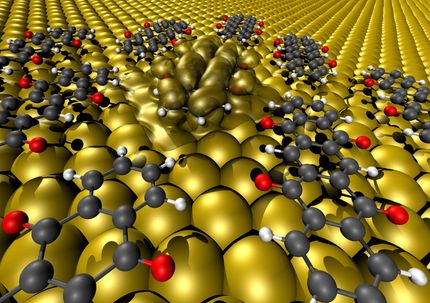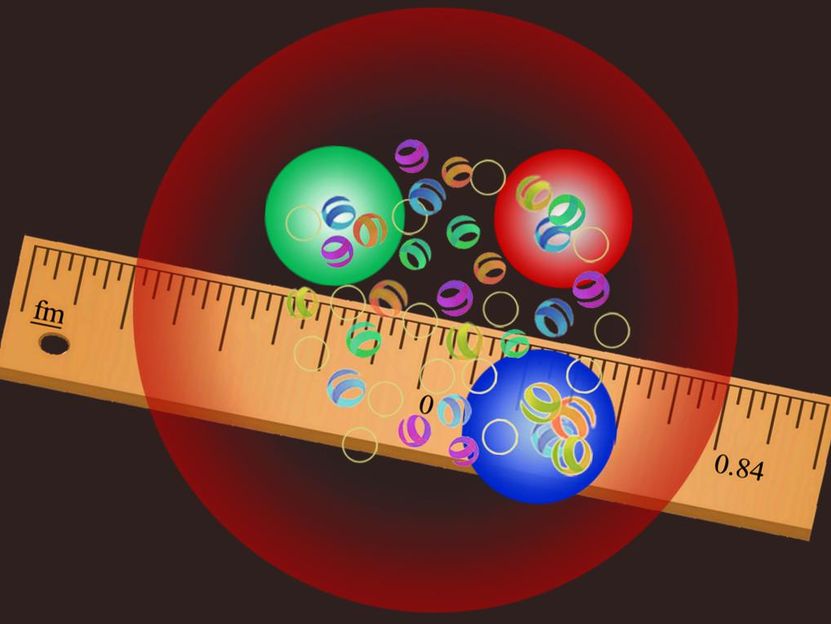Flexible tapes from the nanoworld
Chemical reaction yields "tapes" of porphin molecules
Dr. Wilhelm Auwärter and his team are working on a research project to develop tiny flat molecule tapes at the Department of Physics of Technische Universität München (TUM). These structures could find versatile applications. Via direct coupling on a silver surface, the scientists successfully formed dimers and short chains of porphine molecules without contaminating by-products.
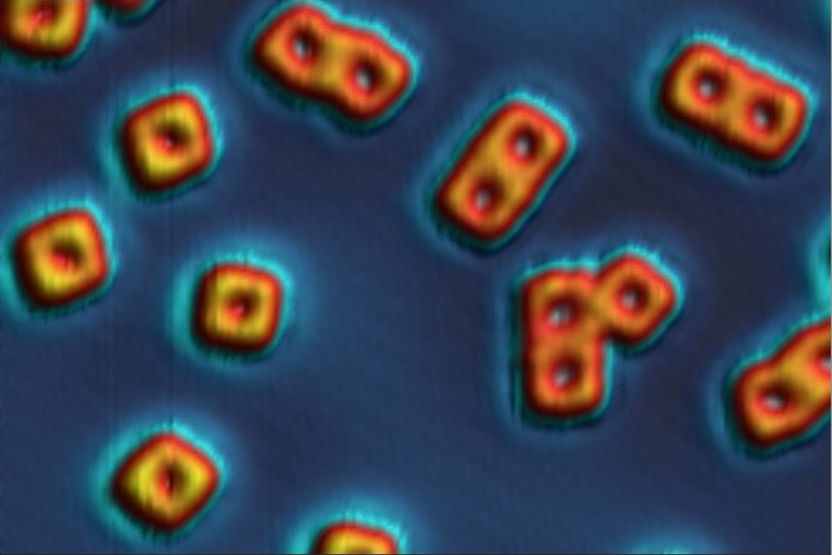
Porphin-Dimere
W. Auwärter/Alissa Wiengarten/TUM
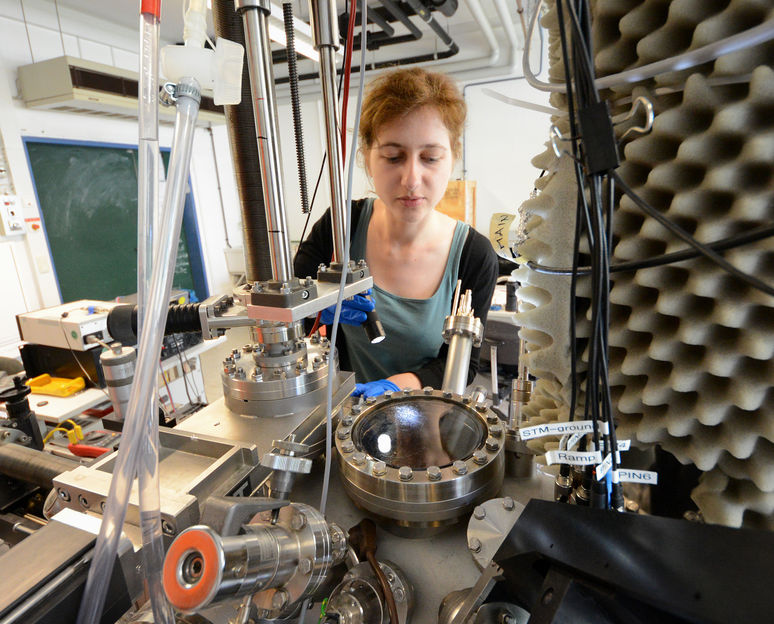
Alissa Wiengarten, PhD student at the TUM Department of Physics, heats a porphine powder in a vacuum chamber.
Thorsten Naeser/Munich-Centre for Advanced Photonics
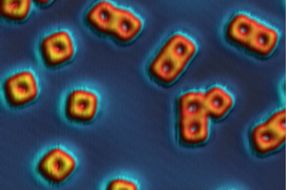
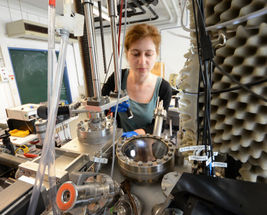
Porphyrin molecules are essential to many biological processes, such as photosynthesis and respiration.Dr. Wilhelm Auwärter'sgroup is investigating these all-round talents at TU München. Normally, hydrogen attaches to the outer edges of the porphyrin core – named porphine, but other chemical entities can take the place of hydrogen, thereby changing the properties of the molecules.
Alissa Wiengarten, PhD student at the TUM Department of Physics, heats a porphine powder in a vacuum chamber. In the process, individual porphine molecules leave the collective and adhere to a silver surface, where they react with each other and assemble into small groups – all by themselves. Single molecules can desorb from the hot surface, while chains of two, three or more porphine units cannot. In this way the scientists were able to assemble chains of up to 90 porphine units.
Thorough analysis
Using a surface made of silver is essential to the experiment: "Silver seems to be a kind of catalyst for the reaction", Wilhelm Auwärter explains. "Still, we don't fully understand why this is the case."
Aside from fundamental questions, Auwärter’s group also hopes to find a way to generate ordered long molecular porphin chains, so-called tapes. Only one molecule wide, such structures could serve as optically active elements in electronic applications or data storage.
In order to investigate these tiny structures on the silver surface, Auwärter's team uses a whole range of sophisticated structure analysis techniques available at TUM and through cooperation with international partners.
Fascinating images of the molecular structures, for example, were captured using a scanning tunneling microscope at TUM. The team also conducted spectroscopy analyses using synchrotron radiation of the ELETTRA storage ring in Trieste, which provided important insights into the electronic structure of the porphine groups.
Original publication
Other news from the department science
Most read news
More news from our other portals
See the theme worlds for related content
Topic World Spectroscopy
Investigation with spectroscopy gives us unique insights into the composition and structure of materials. From UV-Vis spectroscopy to infrared and Raman spectroscopy to fluorescence and atomic absorption spectroscopy, spectroscopy offers us a wide range of analytical techniques to precisely characterize substances. Immerse yourself in the fascinating world of spectroscopy!

Topic World Spectroscopy
Investigation with spectroscopy gives us unique insights into the composition and structure of materials. From UV-Vis spectroscopy to infrared and Raman spectroscopy to fluorescence and atomic absorption spectroscopy, spectroscopy offers us a wide range of analytical techniques to precisely characterize substances. Immerse yourself in the fascinating world of spectroscopy!
